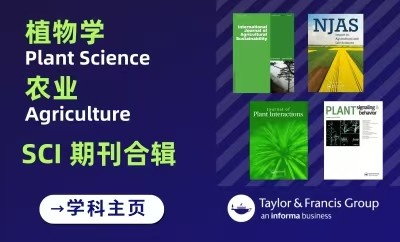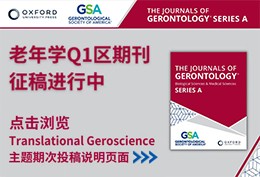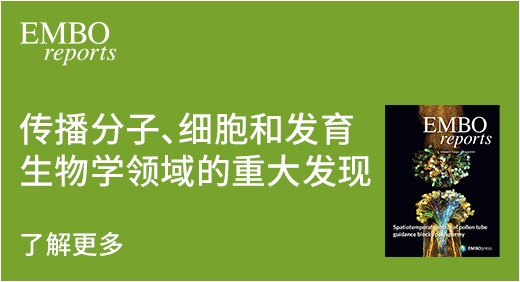-
The New Knowledge: Information, Data and the Remaking of Global PowerBy Blayne Haggart and Natasha Tusikov, Lanham: Rowman & Littlefield, 2023. 337 pp. $120.00 (hardback). ISBN: 978-1-5381-6087-9 Regul. Gov. (IF 3.2) Pub Date : 2025-06-02
Roxana VatanparastConflicts of Interest The author declares no conflicts of interest.
-
Psychological insights and structural solutions: using community frame (c-frame) in climate action and policy response Climate Policy (IF 5.3) Pub Date : 2025-06-03
Gulnaz Anjum, Mudassar Aziz -
Do cities with greater transformative governance capacity pursue more ambitious policies? Examining U.S. cities through the lens of climate resiliency Climate Policy (IF 5.3) Pub Date : 2025-06-03
S. Mohsen Fatemi, Rachel M. Krause, Le Anh Nguyen Long, Gwen Arnold, Sara Ludwick -
The dual nature of innovation in government: differentiating between generation and borrowing Public Manag. Rev. (IF 5.0) Pub Date : 2025-06-03
Jianxing Yu, Junxing Wang, Biao Huang -
Navigating the EU Corporate Sustainability Due Diligence Directive: How Multinational Enterprises Approach Regulatory Familiarization in the Chocolate Sector Regul. Gov. (IF 3.2) Pub Date : 2025-06-03
Manuel KiewischAdopted in 2024, the EU Corporate Sustainability Due Diligence Directive (EUCS3D, alternatively EUCSDDD) instructs member states to regulate human rights and environmental due diligence across business operations and their global value chains. Businesses started to familiarize themselves with the new directive to develop future compliance strategies. Despite its importance, the familiarization process
-
Contribute to public value, experience flow: evidence from a two-wave study in the context of public administration Public Manag. Rev. (IF 5.0) Pub Date : 2025-06-02
Timo Meynhardt, Jessica Bardeli, Fabian Christandl, Maximilian Feser -
Symbolic Effect of Bureaucratic Representation Under Labor Shortage Review of Public Personnel Administration (IF 4.2) Pub Date : 2025-06-02
Fangda DingThe idea of symbolic representation suggests bureaucratic representativeness can enhance citizens’ willingness to coproduce public services, though this effect is not always observed in real settings. While scholars have explored boundary conditions for limited effects of symbolic representation on coproduction, they typically assume fully staffed bureaucracies. How personnel status variations within
-
Responding to Regulatory Feedback: Financial Capacity, Revenue Expectations, and Firms' Responses to the Authority's Recommendations Regul. Gov. (IF 3.2) Pub Date : 2025-06-02
Sanne R. van Duin, Henri C. Dekker, Juan P. Mendoza, Jacco L. WielhouwerIn various regulatory settings, firms receive feedback (i.e., firm‐specific private advice) from authorities on how to improve compliance. Although the literature sheds light on the authorities' decision of when to provide feedback, less is known about firms' decisions on how to respond. Building on research on compliance and regulation, we expect a higher level of responsiveness to feedback when the
-
Relaxing electoral constraints in local education funding J. Policy Anal. Manag. (IF 2.3) Pub Date : 2025-05-27
Michel Grosz, Ross MiltonINTRODUCTION If voters do not like federal tax policy, they can elect new representatives. At the local level, though, voters can directly deny the tax increases their elected officials propose. All but three states have a limit on either the taxing or spending abilities of local governments and, most commonly, state laws require that increases in local taxes receive a public referendum before they
-
Using BERTopic modelling to map the evolution of space syntax research Land Use Policy (IF 6.0) Pub Date : 2025-06-01
Abdelbaseer A. MohamedThe complexity of spatial planning and the increasing emphasis on sustainable, equitable, and efficient land use have intensified the demand for urban theories and methodologies that can comprehensively analyse spatial layouts. Space syntax has emerged as a powerful set of theories and techniques for examining the spatial characteristics of urban form and its influence on human movement, accessibility
-
The interaction between urban heat island and urban parks: An in-situ measurement-based review Land Use Policy (IF 6.0) Pub Date : 2025-05-31
Semra Ogce, Huseyin Ogce, Siyu Yu, Robert D. BrownThis study is a comprehensive review examining the role of urban parks in mitigating the urban heat island (UHI) effect and enhancing outdoor thermal comfort (OTC) based on in-situ measurements. The review analyzed 48 articles based on criteria such as park size, parks' location using the Köppen-Geiger Climate Classification, number of measuring points, the presence of an OTC index, and public survey
-
Optimal strategies to combat land degradation amid climate change: Aligned with UNCCD and Kunming-Montreal commitments Land Use Policy (IF 6.0) Pub Date : 2025-05-31
Ayat-Allah BouramdaneThis study focuses on evaluating various strategies to mitigate land degradation in the context of climate change, aligned with the United Nations Convention to Combat Desertification (UNCCD) and the Kunming-Montreal Global Biodiversity Framework Commitments. The core aim is to assess these strategies through the Multi-Criteria Decision-Making (MCDM) approach, specifically the Analytic Hierarchy Process
-
Monitoring and restricting real property ownership on national security grounds: The case of Northern European countries Land Use Policy (IF 6.0) Pub Date : 2025-05-30
Kirsikka Riekkinen, Pauliina Krigsholm, Olga PenkkiläRapid changes in global geopolitics have prompted debate about the need to monitor and restrict ownership of real property on national security grounds. Research of foreign ownership on real property has focused on the economic effects of infrastructure purchases, whereas the range of land administration tools to monitor or restrict ownership rights has not received much detailed examination. The aim
-
Beyond the agro-export boom: The challenges of land concentration and fragmentation in Chile Land Use Policy (IF 6.0) Pub Date : 2025-05-30
Eduardo Villavicencio-PintoThis study conceptualizes Chile's rural property regime as a neoliberal infrastructure confronting the deep uncertainty of climate change. By decoupling productive and social functions, this institutional framework has enabled market dynamics and sustained the agro-export model through legal certainty. However, its emphasis on individual rights and market efficiency now faces an unprecedented challenge:
-
Promoting environmentally and socially responsible investing: interplay between climate and financial literacy Climate Policy (IF 5.3) Pub Date : 2025-05-30
Łukasz Kurowski, Joanna Rutecka-Góra, Paweł Smaga -
The impact of Peru’s land reform on national agricultural productivity: A synthetic control study Land Use Policy (IF 6.0) Pub Date : 2025-05-29
Mauricio Espinoza, Javier EscobalThis paper evaluates the impact of Peru’s collectivist land reform in 1970 on national agricultural productivity. While prior research have shown contrasting impacts of land reform across different settings, few have assessed the productivity consequences of collectivist experiments at the aggregate level. Employing a Synthetic Control Method, we construct a scenario of Peru's productivity trends in
-
The changing tracks of land value capture in constrained policy contexts; A comparison of London’s Crossrail and Grand Paris Express Land Use Policy (IF 6.0) Pub Date : 2025-05-29
Mark C. Smith, Juan Carlos Cuevas, Sonia Guelton, Alex Lord, Richard J. DunningLand value capture is often vaunted as having significant potential to fund public infrastructure, including mega transport projects like urban metro railway schemes. Yet land value capture is frequently challenging to operationalise and project promotors can be reluctant to use it to finance schemes. This article explores why and how land value capture came to be deployed in financing two major contemporary
-
Spatiotemporal urban growth dynamics and its interactions with transportation networks in an unplanned urban conglomeration using satellite imagery: A case study of Mumbai Metropolitan Region, India Land Use Policy (IF 6.0) Pub Date : 2025-05-29
Gopal R. Patil, Samarth Y. Bhatia, Manish Yadav, Krishna Mohan Buddhiraju, K. Venugopala RaoThe present study analyses the spatiotemporal dynamics of urban growth in India's rapidly urbanising Mumbai Metropolitan Region (MMR). A maximum likelihood supervised classification algorithm is used to classify land use/land cover from 1999 to 2019 using the Landsat dataset. The spatial indices, landscape metrics, growth type index, Shannon Entropy, and transportation proximity analysis help quantify
-
Avoiding Access Inequity Due to classification errors in zero-deforestation value chains: Coffee and the European union deforestation regulation Land Use Policy (IF 6.0) Pub Date : 2025-05-29
Caleb Gallemore, Gezahegn Berecha, Adugna Eneyew, Janina Grabs, Kristjan Jespersen, N.’gwinamila Kasongi, Melkamu Mamuye, Gina Maskell, Annkathrin Mathe, Daniel Mwalutolo, Ina Niehues, Suyana Terry, Nestory YamunguEuropean Union’s Regulation 2023/115, commonly known as the European Union Deforestation Regulation (EUDR), promises to be a watershed event in global deforestation governance. A significant example of the hardening of soft law, spurred by major corporations committing to zero-deforestation supply chains, the EUDR is also a substantial wager on the efficacy of satellite-based remote sensing technologies
-
Navigating AI and climate change in an unequal world Climate Policy (IF 5.3) Pub Date : 2025-05-29
Vikrom Mathur, Angelina Chamuah -
The Moderating role of Organizational Culture in the Relationship Between Job Autonomy and Innovative Behavior Review of Public Personnel Administration (IF 4.2) Pub Date : 2025-05-29
Euipyo LeeAs modern governments face increasing pressure to meet citizens’ rising expectations, innovation has become a central focus for public organizations. While job autonomy is a well-established antecedent of individual innovative behavior, the moderating role of organizational culture in shaping this relationship remains underexplored. Public organizations often embody different types of culture, such
-
Understanding Literal Compliance in the European Union's Multilevel Fiscal Governance Regul. Gov. (IF 3.2) Pub Date : 2025-05-29
Tiziano Zgaga, Eva ThomannEven if member states formally comply with EU law, the ‘ideal type’ of literal compliance, where EU rules are compliantly transposed without customizing their density or restrictiveness, is both rare and improbable. Why do EU member states engage in literal compliance in the ‘least likely’ case of the EU's Fiscal Compact, where customized transposition is crucial for member states to ‘regain control’
-
The neglect of climate change-induced displacement in policy instruments: interrogating Nepal’s climate change policies and adaptation plans Climate Policy (IF 5.3) Pub Date : 2025-05-28
Dipak Bishwokarma, Ramesh Sunam -
Trust in nursing home services within weak regulatory regimes: the role of information, control and participation Public Manag. Rev. (IF 5.0) Pub Date : 2025-05-28
Ixchel Pérez-Durán, Koen Verhoest -
Is That a Threat? How Types of Stakeholder and Reputational Threat Matter for Gaining Influence in Regulatory Rulemaking Regul. Gov. (IF 3.2) Pub Date : 2025-05-28
Rik JoosenThis paper assesses what type of comments are most useful to what type of stakeholder in gaining influence during public consultations. Theoretically, the paper approaches stakeholders' consultation comments as reputational threats from key audiences that the agency needs to respond to. Different types of threats are expected to carry different weights depending on the type of stakeholders. The analysis
-
Financial Performance Of State-Owned Enterprises: Does Political Ideology Play A Role? J. Public Adm. Res. Theory (IF 5.2) Pub Date : 2025-05-27
Leonardo Henrique Lima de Pilla, Alketa Peci, Rodrigo de Oliveira LeiteCorporatization in the public sector entails decentralizing the provision of public goods and services to more autonomous entities, including state-owned enterprises (SOEs). Research indicates that the decision to corporatize is driven, among other factors, by the pursuit of financial sustainability in public organizations. A continuing debate revolves around whether the political ideology of incumbents
-
Beyond Compliance: The Role of Corporate Governance in Shaping Whistleblower Protection Policies Regul. Gov. (IF 3.2) Pub Date : 2025-05-27
Nandana Wasantha Pathiranage, K. N. Thilini Dayarathna, Christine Jubb, Wahed WaheduzzamanThis study investigates the impact of selective good corporate governance practices on the development of mandatory whistleblower protection policies in corporations. Using a coding instrument aligned with legislative requirements, we analyzed 66 whistleblower policies to assess their comprehensiveness and alignment with best practices. The findings reveal that, except for executive gender diversity
-
Polycultural food production in temperate woodlands: Multifactorial benefits and political-economic barriers Land Use Policy (IF 6.0) Pub Date : 2025-05-26
Steffen Hirth, Ivan Drlička, Matthew Paterson, Paul W. ThomasGiven the need to produce sufficient food while meeting net zero targets and protecting biodiversity, there is renewed impetus to expand woodland-based food systems in the Global North, including agroforestry and forest gardening. Typically, however, agriculture, forestry, and conservation are separated spatially, as well as conceptually, and afforestation policies insufficiently consider the integration
-
Broader and more intensive sustainable public procurement: a legitimacy theory perspective Public Manag. Rev. (IF 5.0) Pub Date : 2025-05-26
Ruben Nicolas, Fredo Schotanus -
Operational transparency and satisfaction with public services Public Manag. Rev. (IF 5.0) Pub Date : 2025-05-25
Hung-Yi Hsu -
Pioneering Progress: American Science, Technology, and Innovation Policy by William B.Bonvillian. Cambridge, MA: MIT Press, 2024, 416 pp., $50.00 (paperback). ISBN: 978‐0262549448. J. Policy Anal. Manag. (IF 2.3) Pub Date : 2025-05-25
Kai N. LeeClick on the article title to read more.
-
Information needs and methods of accessing climate information by urban children and youth in Bangladesh: a policy-practice agenda Climate Policy (IF 5.3) Pub Date : 2025-05-24
Md Khalid Hossain, Zerina Lokmic-Tomkins, Gillian Oliver, Joy Bhowmik, Simon Rahman, Misita Anwar, Viviane Frings-Hessami, Tanjila Kanij -
Budget Guardians: Financial Administrators’ Compensation and Budget Overruns Review of Public Personnel Administration (IF 4.2) Pub Date : 2025-05-24
Mikhail IvonchykThis study examines the relationship between employee compensation and bureaucratic performance within the context of state budgeting. It hypothesizes that better-compensated rank-and-file employees within state financial administration are more effective at preventing budget overruns. Using data from all 50 U.S. states from 2006 to 2020, the findings reveal that higher compensation levels for rank-and-file
-
Trump’s Politicization of the Civil Service: Taking the Unitary Executive Seriously Review of Public Personnel Administration (IF 4.2) Pub Date : 2025-05-24
Donald P. Moynihan -
A Case for Public Service: Why Cutting the Federal Workforce is Not Efficient? Review of Public Personnel Administration (IF 4.2) Pub Date : 2025-05-24
Meghna Sabharwal, Imane Hijal-Moghrabi, Sean McCandless -
Crisis in the U.S. Federal Workforce, the Parallel State, and Ways to Rebuild Review of Public Personnel Administration (IF 4.2) Pub Date : 2025-05-24
William ReshThis essay analyzes a watershed moment in the history of the U.S. federal civil service, driven by politically motivated reforms under the Trump administration. I explore how workforce reductions might affect key public services, the legal controversies surrounding Trump’s mass layoffs, and I project a rapid expansion of privatization. I posit how these factors might undermine responsiveness to vulnerable
-
Diversity, Equity, and Inclusion—Essentials of Democracy Review of Public Personnel Administration (IF 4.2) Pub Date : 2025-05-24
Susan T. GoodenSafeguarding democracy in the United States requires aggressive reinforcement of diversity, equity, and inclusion which are neither Democratic nor Republican values. They are essential values of our democracy and are deeply embedded in core democratic principles. Government has a responsibility to provide public services in a fair and just manner to all.
-
When Destruction is the Goal Review of Public Personnel Administration (IF 4.2) Pub Date : 2025-05-24
Mary E. GuyThe U.S. federal civil service has been rocked to its core since January 20, 2025. Random, unplanned, unannounced firings are leaving every agency in doubt. I argue that those who care about good government, and public sector human resource scholars in particular, should advocate for merit principles and explain how they ensure government performance. Bolstered by lessons from the past, this is an
-
Impacts of human appropriation of net primary production on soil retention service: A case study of an ecological-resettlement village in the Tibetan Plateau Land Use Policy (IF 6.0) Pub Date : 2025-05-23
Muliang Yu, Zhennan Li, Junxi Wu, Ying Pan, Yuejun Liu, Yanjie ZhangQuantifying the impacts of human activities on ecosystem services is crucial for promoting sustainable development of land resources and ecosystems. Therefore, taking an ecological resettlement village as a case study, we assessed human appropriation of net primary production (HANPP) and soil retention service (SRS) under different resettlement scenarios from 2014 to 2050. Moreover, we incorporated
-
Divergent global land change scenarios from 2001 to 2019 Land Use Policy (IF 6.0) Pub Date : 2025-05-23
Siqi Peng, Xiao Zhang, Liangyun LiuGlobal land use and land cover (LULC) change plays a critical role in environmental change, biodiversity conservation, climate regulation, and ecosystem services. Over the past few decades, multiple global LULC datasets—such as MCD12Q1, ESA CCI-LC, GLC-FCS30D, HYDE 3.3, HILDA+ , and LUH2—have been developed using remote sensing or historical reconstruction. In this study, we comprehensively analyse
-
The Governance of the European Digital Identity Framework Through the Lens of Institutional Mimesis Regul. Gov. (IF 3.2) Pub Date : 2025-05-23
Linda Weigl, Marta ReysnerThe European Commission's decision to expand its 2014 Regulation on electronic identification and trust services toward wallet‐based digital identities marked a significant shift in the governance of users' digital identities. The intersection between private digital services, public prerogatives, and individual self‐determination raises questions of data governance, notably power conflicts over control
-
Property view assessment by integrating BIM and 3D GIS: A quantitative methodology Land Use Policy (IF 6.0) Pub Date : 2025-05-22
Fazel Shahchergh, Jamshid Maleki, Saeed Nadi, Davood ShojaeiThis paper presents a method for quantitatively evaluating property landscape views by integrating Building Information Model (BIM) and 3D Geographical Information Systems (3D GIS). Previous studies have used limited methods such as dummy variables and the hedonic method, which are subjective and implicit. Additionally, GIS-based methods have not fully accounted for important variables such as building
-
The Resilience of New Public Management. By IrvineLapsley and PeterMiller, Oxford: Oxford University Press, 2024. 400 pp. $145 (hardback). ISBN: 978‐0‐19‐888381‐4 Regul. Gov. (IF 3.2) Pub Date : 2025-05-22
Danture WickramasingheConflicts of Interest The author declares no conflicts of interest.
-
Understanding stringency of performance systems: the case of performance-based funding in U.S. higher education Public Manag. Rev. (IF 5.0) Pub Date : 2025-05-21
Lilia Minaya, Milena I. Neshkova, Alexander Kroll -
Assuring Social Distancing Through Regulatory Intermediaries: The Role of Local Facilities in Deterring COVID‐19 in South Korea Regul. Gov. (IF 3.2) Pub Date : 2025-05-21
Jong Hun Lee, Seung‐Hun HongAmid the COVID‐19 Pandemic, many countries worldwide have resorted to social distancing to maintain a certain physical distance to avoid direct contact between people. Despite the abundant literature on social distancing, how this mode of direct state intervention, which inevitably requires a lot of regulatory resources, was implemented has been a rare source of scientific inquiry. This paper attempts
-
-
Environmental regulations and pollution-intensive goods exports: direction of India’s trade specialization with CBAM on the horizon Climate Policy (IF 5.3) Pub Date : 2025-05-20
Dhananjay Kumar Rai, Subir Sen -
Agency orientation and bureaucratic behaviour towards clients: evidence from a survey experiment among unemployment caseworkers Public Manag. Rev. (IF 5.0) Pub Date : 2025-05-20
Mogens Jin Pedersen, Niels Bjørn Grund Petersen, Martin Bækgaard, Jonas Krogh Madsen -
Climate overshoot implications for local adaptation planning Climate Policy (IF 5.3) Pub Date : 2025-05-17
Emily Theokritoff, Quentin Lejeune, Hugo P. Costa, Khadija Irfan, Mariam Saleh Khan, Chahan M. Kropf, Helena Gonzales Lindberg, Inês Gomes Marques, Inga Menke, Carl-Friedrich Schleussner, Adelle Thomas, Tiago Capela Lourenço -
Policy advisory system actors or policy entrepreneurs? An analysis of policy advice quality in Kenyan anticorruption policymaking Policy and Society (IF 5.7) Pub Date : 2025-05-16
Justa MwangiThis paper explores PAS actors and policy advice quality dynamics within anticorruption policymaking processes in Kiambu and Nairobi City counties, which are two devolved systems of government in Kenya. It is based on empirical research that sought to determine the level of policy advice quality provided by three critical PAS actors—the state, business, and civil society. These actors were of particular
-
Explaining patterns of co-creation in Swiss local governance Public Manag. Rev. (IF 5.0) Pub Date : 2025-05-16
Jörn Ege, Claire Kaiser, Reto Steiner -
Mitigating collaborative inertia: how leadership transfer networks improve the low-carbon governance of local governments Public Manag. Rev. (IF 5.0) Pub Date : 2025-05-16
Bin Guan, Pinggui Gao -
Does bureaucracy demotivate public servants? An assessment of psychological mechanisms and the moderating role of age Public Manag. Rev. (IF 5.0) Pub Date : 2025-05-16
Glenn Houtgraaf, Rick T. Borst -
The relationship between tourism activity, natural amenities, and second-home development: Insights for Land use planning Land Use Policy (IF 6.0) Pub Date : 2025-05-15
Marta Meleddu, Dimitri Paolini, Sandra Valeria Posadas EtcheverrySecond-home development in regions with rich natural amenities can both enhance economic opportunities and pose environmental challenges, making sustainable planning crucial. These properties are closely tied to the preservation and well-being of their natural surroundings, and balanced development is essential for sustainable land use and economic growth in these areas. However, limited research has
-
The Politics of Regulatory Oversight: How Analysts Expand, Shield, or Bend Their Mandate While Reviewing Regulations Regul. Gov. (IF 3.2) Pub Date : 2025-05-15
Samantha Ortiz CasillasRegulatory review—assessing the legality, use of evidence, and correct calculation of costs and benefits in regulations before they are enacted—is a core function of regulatory oversight bodies. In principle, reviewing aims to improve the effectiveness of regulations through economic rationality, tools, and methods. In practice, the work of oversight bodies occurs amid the politics of the rulemaking
-
Agrivoltaics increases public acceptance of solar energy production on agricultural land Land Use Policy (IF 6.0) Pub Date : 2025-05-14
Hendrik Hilmar Zeddies, Martin Parlasca, Matin QaimCompetition for land is a key challenge for decarbonized energy transitions. Open-space solar energy farms are gaining in importance but have large land requirements and displace agricultural production. Agrivoltaics offers a compromise, integrating solar panels into existing farming operations. However, adoption of Agrivoltaics remains limited, as it has lower energy output per hectare and higher
-
The geography of property rights: Land concentration, irrigation access and rural poverty under climate change in Chile Land Use Policy (IF 6.0) Pub Date : 2025-05-14
Eduardo Villavicencio-PintoProperty regimes influence territorial development through institutional frameworks that determine land access and resource distribution. This research examines the relationship between land concentration and rural poverty in Chile, where the property regime enables unrestricted accumulation. The investigation employs quantitative methods to analyze data from 253 municipalities, integrating Agricultural
-
Do governance platforms achieve the aims of the platform sponsor? Principal-agent tension in environmental governance reforms J. Public Adm. Res. Theory (IF 5.2) Pub Date : 2025-05-14
Elise Zufall, Tyler Scott, Mark Lubell, Linda Esteli Mendez BarrientosState and federal governments use governance platforms to achieve central policy goals through distributed action at the local level. For example, California’s 2014 Sustainable Groundwater Management Act (SGMA) mandates local policy actors to work together to create new groundwater management institutions and plans. We argue that governance platforms entail a principal-agent problem where local decisions
-
Implementation of deep learning algorithms to model agricultural drought towards sustainable land management in Namibia's Omusati region Land Use Policy (IF 6.0) Pub Date : 2025-05-13
Selma Ndeshimona Iilonga, Oluibukun Gbenga AjayiNamibia's Omusati region, a semiarid agroecological zone, faces intensifying agricultural droughts driven by climate change, erratic rainfall, and land degradation. With 70 % of its population dependent on rain-fed subsistence farming, these droughts threaten food security, livelihoods, and ecological stability, highlighting the need for predictive tools to support sustainable land management. This
-
Policy advisory system quality under multilevel governance: the German COVID-19 experience Policy and Society (IF 5.7) Pub Date : 2025-05-13
Johanna Hornung, Philipp TreinPolicymakers frequently seek scientific expert advice to navigate new and complex policy challenges, but the decisions that must be taken to address these problems often require the cooperation of different levels of government as well as state and non-state actors. While existing literature has acknowledged that the political context influences the processes of scientific policy advice, it lacks the


















































 京公网安备 11010802027423号
京公网安备 11010802027423号